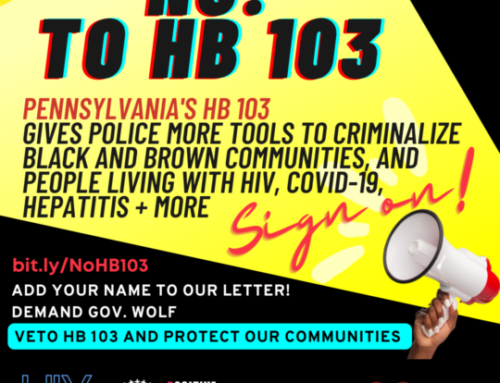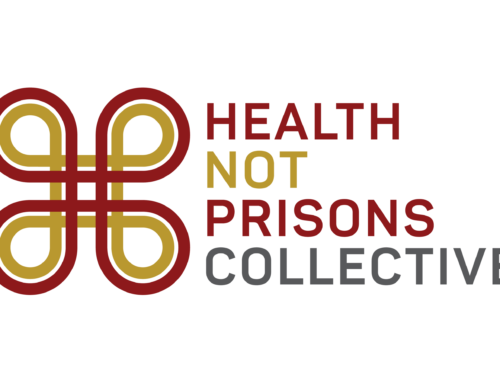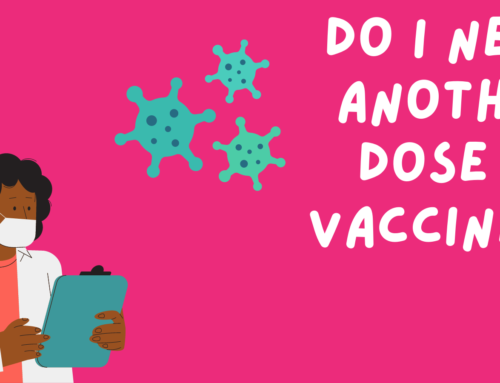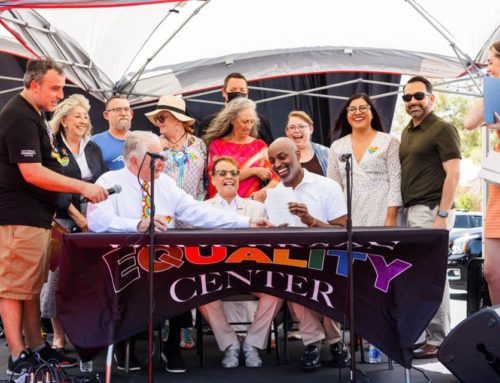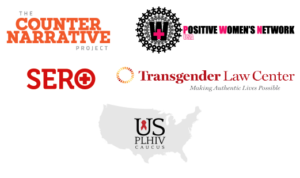
For Immediate Release
Contact: Naina Khanna, Positive Women’s Network – USA, naina(at)pwn-usa.org
As Calls for Justice Echo Around the United States, National Groups Led by Most-Policed Communities Affected by HIV and COVID-19 Join in Partnership
The Health Not Prisons Collective Vows to Combat Anti-Black Racism,
End Criminalization of Pandemics and Abolish Systems of Imprisonment
June 18, 2020: The Health Not Prisons Collective is a new, three year national initiative of longtime collaborators led by, and accountable to, communities most affected by HIV criminalization in the United States: Counter Narrative Project, Positive Women’s Network – USA (PWN), Sero Project, Transgender Law Center, and the U.S. Caucus of People Living with HIV (The Caucus).
HIV criminalization is the wrongful use of a person’s HIV-positive status in a criminal prosecution, including charging people living with HIV (PLHIV) under HIV-specific criminal statutes, or under general criminal statutes, for behaviors which would not be crimes if the person did not have HIV. There is little legal or other support available for those charged with HIV crimes, yet the consequences of being charged under an HIV criminalization law are severe, even without conviction, and persist long after a person leaves the criminal justice system.
Collectively, and with steadfast allies, the founders of the Collective have pushed criminalization to the forefront of the HIV policy agenda. Now, in the first year of the COVID-19 pandemic, the Collective will build the power of the intersectional national HIV movement led by Black, Indigenous and people of color (BIPOC), women, LGB people, and transgender and gender non-conforming people (TGNC) to refocus our efforts instead of blame, punishment and the denial of basic needs.
Criminalization is never a solution to health challenges. Communities that are already heavily surveilled, policed, and criminalized bear the brunt of HIV criminalization are at the highest risk of harm from COVID-19 related surveillance, policing, criminal charges and/or penalty enhancements. A response rooted in policing and criminalization not only undermines public health and human rights, but jeopardizes the long-term survival of our communities.
“The specifics of the COVID-19 pandemic may be unprecedented — but the racial disparities, intensification of stigma and marginalization, and threats of criminalization in the COVID-19 pandemic are sadly not unanticipated to those of us living with HIV,” said Andrew Spieldenner of the U.S. Caucus of People Living with HIV. “As we work together to overturn the criminalization of HIV baked into policies and laws decades ago, we will also urge our communities and leaders to repudiate the panic and reactive thinking that says police, prosecutors and prisons are the way to handle public health emergencies like COVID-19.”
With support from Gilead Sciences, the Collective’s three-year strategy incorporates political education and training; grassroots and grasstops organizing; policy analysis and advocacy; legal intervention; and narrative change designed to shift discourses about HIV, risk, blame, responsibility, and the role of the carceral state in public health, centering racial and gender justice.
“Most HIV criminalization laws in the U.S. were established at a time when less was understood about HIV transmission. There’s no evidence it has ever contributed to HIV transmission reduction. Today, it directly contradicts current public health efforts to encourage people to know their HIV status and engage in health care and treatment; very few laws have been updated in light of advances in scientific advancements,” explained Tami Haught of Sero Project.
“We can’t stop HIV or COVID-19 criminalization without recognizing the underlying politics of racism, blame and bias that fuel them,” said Charles Stephens of Counter Narrative Project “Only a strategic and sustained movement led by those most targeted by criminalization ourselves and that changes the very narratives of blame in our society will overcome the root conditions that make it politically feasible to pin harm on vulnerable individuals from targeted communities.”
“Successful advocacy to end HIV criminalization requires centering PLHIV and those from overpoliced communities. Despite limited resources, members of the Collective have already had significant success in advancing the community and public discourse as well as influencing policy,” explained Cecilia Chung of Transgender Law Project. “We must now remove the remaining barriers that stop our leaders, including transgender and gender non-conforming Black and brown people, disabled people and others, from scaling up our movement and winning the freedom to thrive as we are.”
Due to lack of resources, work on HIV criminalization to date has largely been episodic, resulting in less coordination and varying results. This coordinated, strategic, multi-year effort will fill a critical gap at the nexus of policy, grassroots organizing, movement building, increasing political will to decriminalize, and culture change at a vital time. The Collective urges funders and people of privilege to invest in multi-year initiatives, honoring the passion and truths of communities with the resources it takes to rapidly scale efforts to win significant, lasting change.
“Our members are on the frontlines of pandemics, and they’re also deep in the resistance to overturn the system that profits from anti-Black racism and violence,” said Naina Khanna of Positive Women’s Network – USA. “We need to honor their commitment and vision with resources. Ongoing dedicated funded initiatives have the best chance to shift the social, legal and political landscape of our nation.”
If you need help with a pandemic-related prosecution or threat, contact Sero Project for HIV-related issues and Community Resource Hub for COVID-19-related issues.



